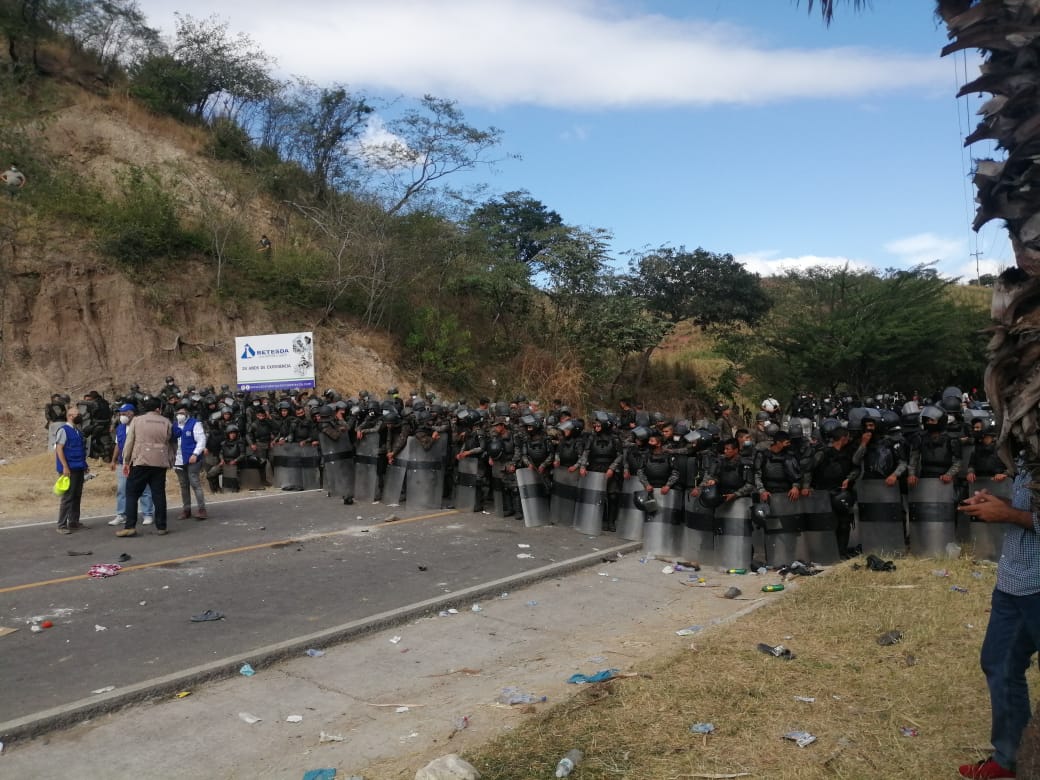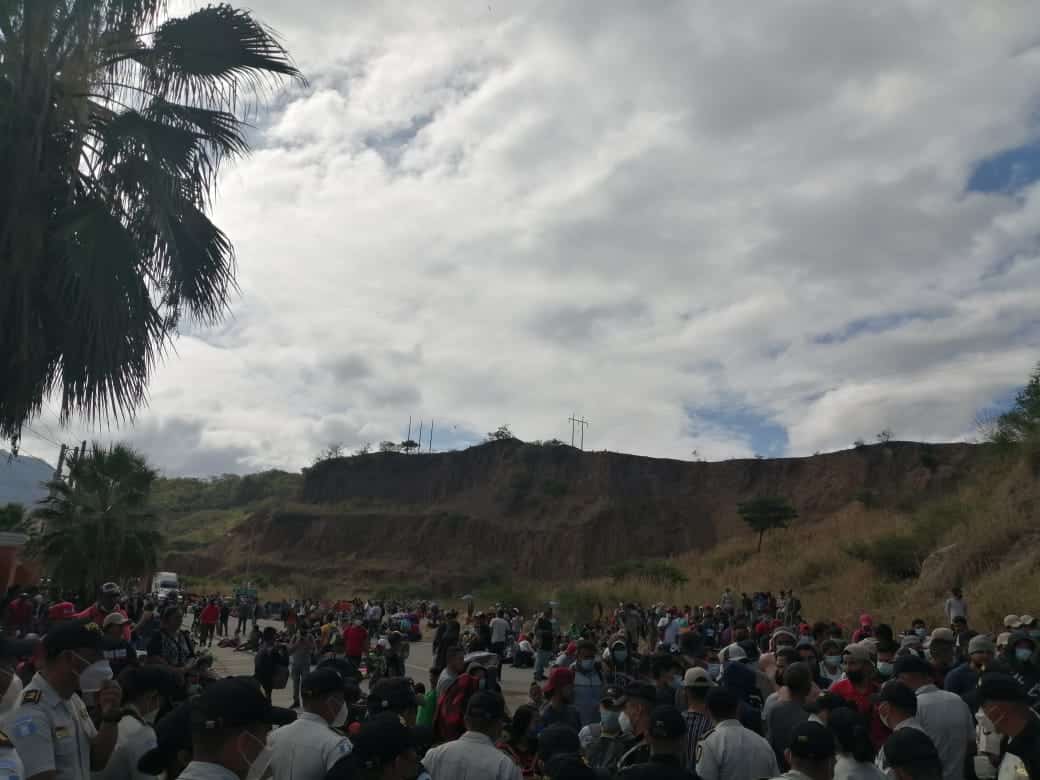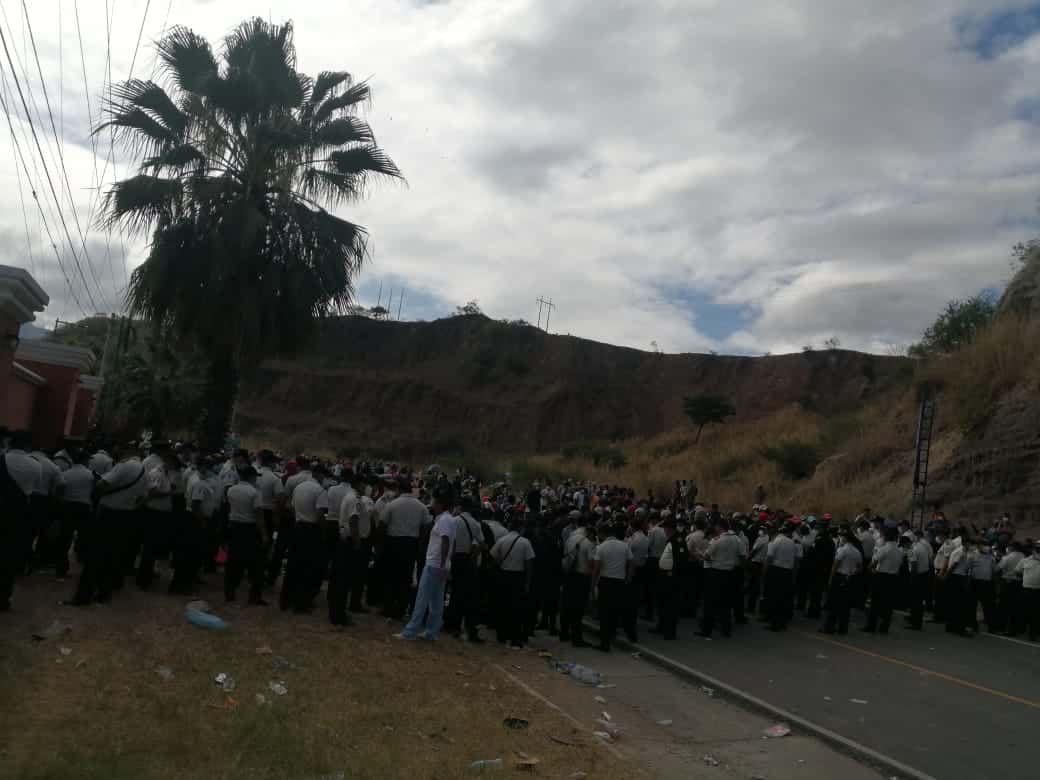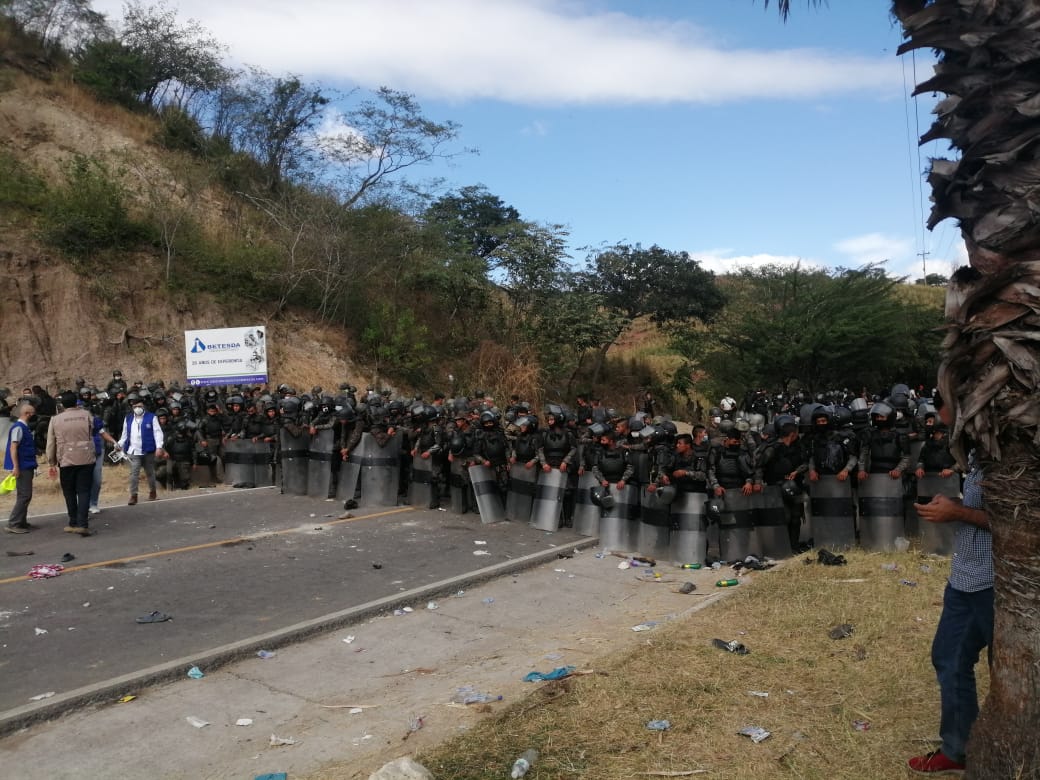As nonprofits in the region prepare for an influx of immigrants under the Biden Administration, U.S. Customs and Border Protection received authorization Tuesday from the city of Donna to begin construction of soft-sided facilities, or large tents, to process immigrants entering the country — a project that’s expected to be completed in 30 days.
“CBP is moving forward with plans for the mobilization of soft-side facilities (SSF) in Donna, Texas,” read a statement from a CBP spokesperson. “A lease with the city of Donna was awarded on January 15, 2021 and the notice to proceed was signed on January 19, 2021. Construction of the SSF should be completed in approximately 30 days.
“Since April, CBP has seen a steady increase of UACs (unaccompanied children) from the Western Hemisphere due to the worsening economic conditions brought on by the COVID-19 pandemic. As such, CBP is constructing temporary soft-side facilities in Donna, approximately 20 miles from the RGV CPC, to ensure existing processing capacity remains.”
On Nov. 18, a federal court in D.C. blocked the government from expelling unaccompanied children who entered the country during the pandemic. Since the start of the fiscal year, CBP reports a 9% increase in children encountered coming into the country alone.
Waves of migrants from Central America began their trek to the U.S. last week. By Tuesday, thousands were deported from Guatemala. Though, the current policy to expel migrants due to the pandemic is in place for adults and families, there is no facility large enough currently available for their processing.
In late November 2020, CBP announced they would be renovating the McAllen Central Processing Center. That new permanent facility will have a projected capacity of around 1,100 people, and it’s tentatively scheduled to be fully operational by early 2022.
No details on the capacity or exact location for the temporary facility in Donna was provided as of Tuesday.
A contract for soft-sided structures in Brownsville and Laredo is also pending. CBP published the contract specifications on Saturday.
The structures support the “DHS Migrant Protection Protocol program,” which sends asylum seekers to Mexico to await their U.S. court hearings.
Temporary immigration hearing facilities, or IHFs, are already in place at the ports of entry in both cities, but operations were halted by COVID-19.
“In December, after having established strategies for managing pandemic concerns, a final decision was made to move forward with another temporary solution while a permanent solution was contemplated,” the contract reads.
The firm awarded the contract will be charged with maintaining the tent courts, and “staffing associated with the administration, operation, IT, security, and maintenance of the facilities.”
The soft sites are one of several ways local stakeholders are preparing for the possible arrival of migrant caravans at the Rio Grande Valley border.
SHELTERS PREPARE
Valley nonprofit leaders participated in a video conference call with federal officials last week. The meeting was initiated by executive director of Catholic Charities of the Rio Grande Valley, Sister Norma Pimentel.
“We’re working together with the city government, Border Patrol, and the heads of all the shelters along the Rio Grande,” Pimentel said, describing the meeting as “successful.”
Catholic Charities of the Rio Grande Valley oversees operations at the Humanitarian Respite Center in McAllen. During the 2019 surge, thousands of migrants processed by federal immigration officials were released to the center and other shelters in Brownsville and Harlingen. There was no prior planning then.
“This year,” Pimentel said, “I took the initiative to convene everybody, and everybody was really pleased that we did this.”
The video conference addressed problems and concerns of a possible surge.
Crowds released to shelters dwindled in 2020 after the implementation of the Trump Administration’s Migrant Protection Protocols, or MPP, and the CDC’s March 2020 orders prohibiting entry to people during the pandemic. The shelters altered their services.
Space dedicated to migrants was filled up by people who fell victim to homelessness during the pandemic, but it was also reduced by the COVID-19 restrictions.
“We reduced our capacity by 50%,” Bill Reagan, executive director at Loaves & Fishes of the Rio Grande Valley, a Harlingen shelter, said. “Normally, our capacity would be 60-65. We are at about 30; sometimes we have as many as 40 in the shelter.”
During the influx in 2019, shelters like Loaves & Fishes doubled or tripled their capacity by using cots. Reagan said they could accommodate up to 200 people then. With a pandemic, everything changed.
“Our main focus is the homeless prevention programs,” he said, explaining the programs dedicated to help people pay bills for qualifying residents. They’ve also removed the time restrictions to allow people to stay at their shelter longer than the 30-day limit.
“We don’t have any space to take any migrants if they should show up, not in our building,” Reagan said.
Two years ago, migrants could squeeze a cot into the hallway or lobby.
“We still have plenty of cots, but we can’t take anybody into the building,” he added.
In Brownsville, the Good Neighbor Settlement House and the Ozanam Center offer temporary housing to migrants and people without a home.
“We are probably at a 30% capacity,” Victor Maldonado, Ozanam Center director, said, adding that they can expand to fit 250 people in the days before the pandemic. “But because of COVID, we have to reduce it to half of that.”
Transportation from shelters to bus stations and airports was provided by the city of Brownsville. It cost the city about $395,000, according to estimates provided by the city manager, Noel Bernal.
Though representatives for the city of Brownsville were part of the video conference, Bernal said they will monitor developments but continue focusing on addressing the health crisis.
“This is a matter that continues to develop, and our priority right now is to continue to flatten the curve with the (COVID-19) pandemic,” Bernal said in a statement.
McAllen also welcomed a great share of migrants at the respite center during the height of the humanitarian crisis.
Hundreds of migrants would turn up every day during the surge in 2019, but, unlike long-term shelters, the majority only stay for a couple of hours — or however long it takes to receive a meal and instructions to purchase bus or plane tickets.
During COVID, Pimentel said they only receive a handful of migrants — between two and 10 daily, she estimates — mostly pregnant women or injured migrants.
“Our capacity is 1,200, but because of COVID, we’ll definitely bring that down,” Pimentel said, explaining a lower capacity would allow for physical distancing.
A hotel is used as a filter to quarantine people who may have been exposed to COVID-19. When they test negative, they are allowed to go to the respite center. Similar safety protocols are in place at the Harlingen and Brownsville shelters.
But, in case of a surge, safety concerns are surfacing.
“How can we prevent infections coming to our facilities?,” Reagan posed. Several of the residents at Loaves & Fishes are medically vulnerable.
In Brownsville, Ozanam’s director, Victor Maldonado, said migrants are tested once a week by the city before they are admitted into the center. Their temperatures are also checked throughout the day.
The caravan’s size and route remains volatile, but planning will continue and more video conferences will be scheduled in the near future.
“We haven’t found a solution, but we are working on it,” Reagan said.









